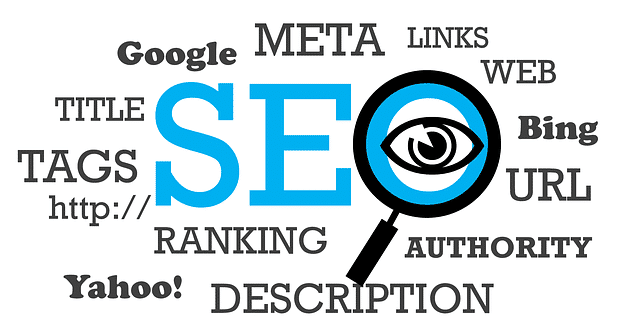If you’ve spent years refining your SEO strategy — optimizing for keywords, building backlinks, and writing search-friendly content — you’re not alone. But search as we know it is changing fast. We’re entering an era where AI doesn’t just rank websites — it writes the answers.
Generative AI platforms like Google’s AI Overviews (formerly SGE), ChatGPT, Perplexity, and Claude are transforming how people discover information. Instead of scrolling through a list of links, users now get a synthesized, conversational answer — often without clicking anything at all. And if your brand isn’t included in those AI-generated results, your visibility could plummet.
That’s where Generative Engine Optimization (GEO) comes in. Think of it as SEO 2.0 — a strategy designed not just to rank pages, but to earn citations, mentions, and visibility directly inside AI-generated responses.
For example, if someone asks, “What’s the best SEO agency in Cleveland for local businesses?” GEO ensures that your agency isn’t buried in search results — it’s the answer an AI recommends.
What is Generative Engine Optimization (GEO)?

Generative Engine Optimization (GEO) is the process of optimizing your website, content, and brand signals so that AI systems — not just search algorithms — can understand, trust, and cite you in their responses.
GEO vs. Traditional SEO: What’s the Difference?
Here’s how GEO differs from traditional SEO:
| Feature | Traditional SEO | Generative Engine Optimization (GEO) |
| Primary Goal | Rank high on search results pages (SERPs) | Be cited, recommended, or quoted in AI-generated answers |
| Optimization Focus | Keywords, backlinks, metadata | Semantic clarity, structured data, entity authority |
| Ranking Signals | On-page content, links, and technical SEO | Contextual trust, source reliability, data structure |
| Search Context | User clicks and reads websites | AI synthesizes and summarizes answers directly |
| Key Platforms | Google, Bing, Yahoo | ChatGPT, Gemini, Perplexity, AI Overviews |
In other words, GEO is about shifting from ranking for clicks to earning inclusion in the AI’s answer.
5 Proven GEO Strategies for Local Businesses

1. Optimize for Conversational and Natural-Language Queries
AI assistants prioritize contextually complete answers to conversational questions. Instead of focusing solely on keywords like “SEO agency in Cleveland,” optimize for full-sentence questions such as:
- “Which SEO agency in Cleveland specializes in local business growth?”
- “How do I choose the right SEO company in Cleveland?”
Action steps:
- Include these natural-language queries as H2 or H3 headings.
- Answer them directly and succinctly in the first sentence under each heading.
- Use FAQ sections to mirror how users ask questions out loud (especially for voice and AI search).
This structure increases the likelihood that AI will extract and cite your response when users search conversationally.
2. Implement Structured Data and Local Schema Markup
AI systems rely heavily on structured data to understand and verify entities. Without it, your business may be invisible to generative models.
Action steps:
- Add LocalBusiness schema to your website with precise business details, including name, address, phone number, hours, and service areas.
- Use FAQ, Review, and BreadcrumbList schema to help AI crawl and categorize your content.
- Include same as schema links to your social media and directory profiles to reinforce entity authority.
For a “SEO agency in Cleveland,” structured data tells AI exactly who you are, where you are, and what you do — making your brand easier to include in synthesized responses.
3. Build and Strengthen your Entity Authority

Generative AI relies on a web of verified entities. The stronger your brand’s entity profile, the more likely AI will treat you as a trustworthy source.
Action steps:
- Ensure NAP consistency (Name, Address, Phone) across all listings and citations.
- Publish detailed “About Us” and “Our Services” pages referencing your location and niche.
- Pursue mentions in local business directories, press articles, and industry publications.
- Internally link related content to reinforce topical authority.
For example, a page titled “Cleveland Local SEO for Restaurants” that links to case studies, testimonials, and supporting blog content signals to AI that your agency is a leading authority in that domain.
4. Create Citation-Worthy, Fact-Rich Content
AI doesn’t cite fluffy marketing copy. It pulls from content that is data-driven, verifiable, and structured for extraction.
Action steps:
- Lead blog sections with clear, one-sentence answers to common questions.
- Support claims with statistics, client results, or reputable sources.
- Include data points (e.g., “Our Cleveland SEO agency increased local search traffic by 57% in six months”).
- Update content regularly to maintain freshness signals.
The more factual and well-structured your content is, the higher the chance that AI models will quote it directly.
5. Amplify Local Trust Signals and Brand Mentions
AI uses signals beyond your website — including reviews, citations, and external mentions — to decide whether you’re credible.
Action steps:
- Encourage clients to leave detailed reviews on your Google Business Profile.
- Secure listings in relevant Cleveland business directories.
- Publish thought leadership articles in local media or contribute to industry blogs.
- Sponsor or participate in local events — and create content around them.
When AI sees consistent references to your brand across trusted local sources, it’s more likely to include you in localized AI results.
Frequently Asked Questions
1: Is GEO replacing SEO?
No. GEO builds on SEO. You still need technical optimization and strong content — but GEO ensures that work translates into visibility inside AI-generated responses.
2: How long does it take to see GEO results?
Most businesses see initial improvements within 3–6 months once they implement structured data, entity optimization, and conversational content strategies.
3: How do I measure GEO success?
Track zero-click impressions, entity mentions, AI citation appearances (via tools or manual checks), and traffic from conversational queries in Google Search Console.
4: Does GEO work for small local businesses?
Absolutely. GEO often levels the playing field because AI prioritizes highly relevant, authoritative, and context-rich answers — not just big-brand domains.
Final Thought: The Time to Act is Now
The way people discover businesses online is evolving. Traditional SEO is no longer enough to guarantee visibility — especially in a world where AI is writing the answers. Generative Engine Optimization ensures that your brand isn’t just found — it’s featured.
If you’re serious about staying visible in the age of AI-driven search, now is the time to adapt. Start by auditing your content, structured data, and entity signals. Then implement the GEO strategies outlined here to future-proof your visibility.
Ready to get ahead of the AI curve? Contact Marketing Done Right today to schedule your GEO Optimization Audit — and let’s make sure your business is the answer in tomorrow’s search results.